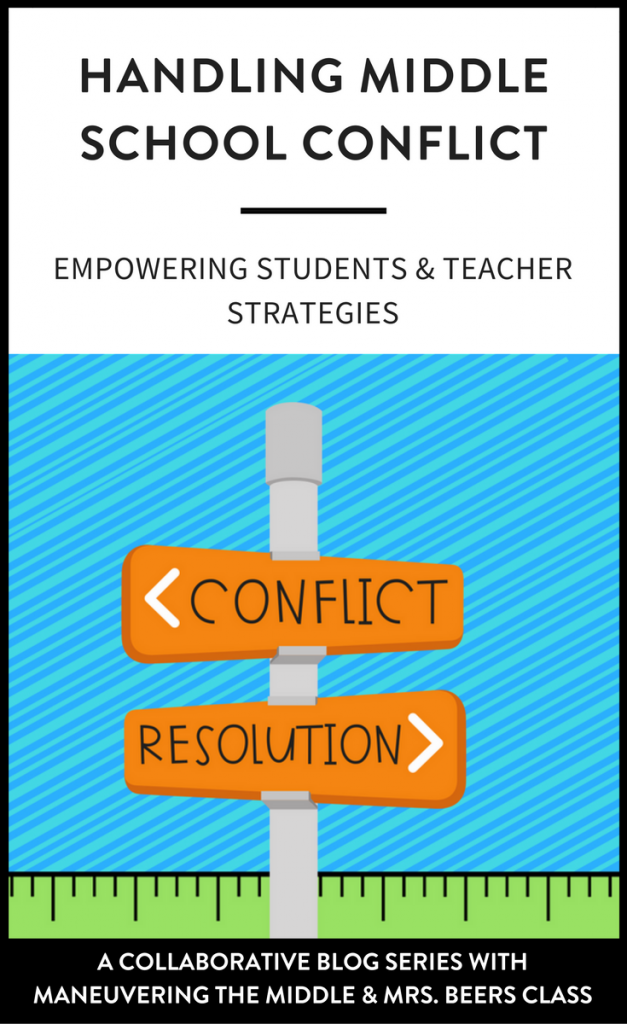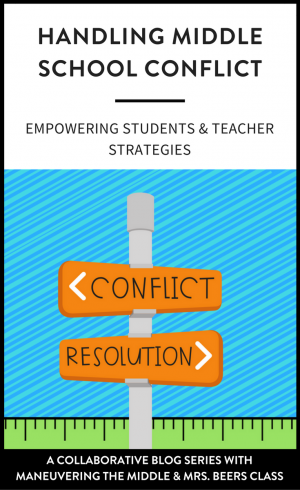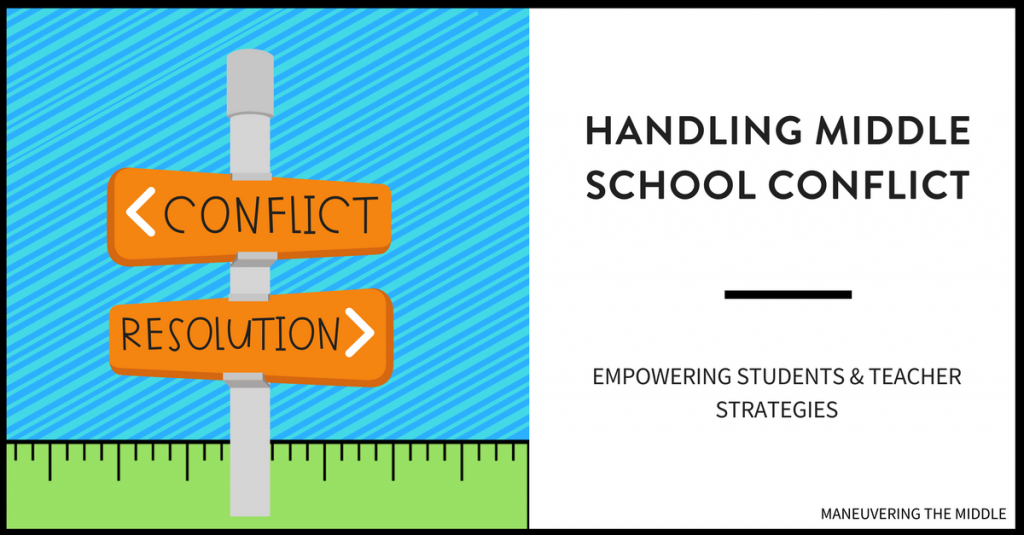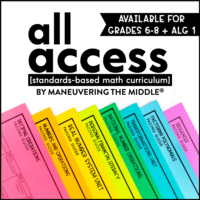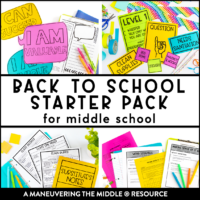As teachers, we teach our students content. We teach them to find the common denominator, to find the percent of a number, to solve for a variable, and the list goes on and on. We teach them routines like how to enter our classroom, how to glue the right way, and how to trade and grade papers. One of the most important skills that we should be teaching them is student conflict resolution.
How to Handle STUDENT Conflict Resolution
Disclaimer: It is always better to ask for help as a teacher. I used to worry about bothering the counselor, but then I realized that the counselor is skilled in this, and it is part of their job. Air on the side of caution. Also, I am not a trained counselor, so please consult your school administration and school policies.
Conflict will arise in your classroom. This could be directly linked to what is happening in your classroom: working in non-functioning groups or pairs. More likely, conflict will arise in your classroom because of something happening somewhere else: lunchtime, social media, or the hallway.
Last school year, I had a student acting despondent. During the warm up, I checked in with her to see if anything was wrong. While she was explaining what happened in her previous class, her partner/friend interrupted by saying that she was lying. This caused a huge blowup between the two of them. It was a huge mess and I thought to myself, “What just happened!?” Their problems had come to a head despite the fact that it had nothing to do with what I had or hadn’t done as their teacher. We acted fast to get the conflict resolved with the help of my awesome assistant principal, but it had me thinking about how students can have tiny conflicts turn into huge blowouts if they are not resolved quickly.
Be Proactive
The best role for you to have in student to student conflict is none. If students can resolve conflict void of any teacher involvement, then that frees you to do the one million other tasks that teachers always have on their to do list. It is also a great life skill that we practice every day as adults, so if they can handle it on their own. In order for that to happen, you need to spend some time at the beginning of the school year and most likely the end too, discussing with students how to resolve conflicts on their own. Here are some of the phrases that you can go over with your students to help summarize some steps in the process:
● Hold the phone: If students are upset, then they should take a deep breath and count to ten before proceeding to confrontation.
● Assuming the best: Students should know that most often when someone has wronged you, they have not done it intentionally.
● “I” statements are your friend: I felt ______ when _____ happened.
Address the Issue
Even if you teach students how to deal with conflict independently, chances are you may have to get involved. And that is ok! A couple of tips:
● Do not try to do this during class. I have tried to do this out in the hallway while I am simultaneously watching the rest of the students, and it goes nowhere. I am too distracted. I try to pull the students while they are at lunch or at specials.
● Get the story from each student independently before you bring them together for a resolution. This way, you are prepared knowing the level of conflict and the degree of harm that has occurred. Also, do not take sides.
● Do not be afraid to refer the issue to a third party. We have some amazing guidance counselors and social workers that work hard for students. We are definitely the gatekeepers on who needs further counsel; some issues are just above our pay grade and time commitment. It’s best to get a professional involved. You are not bothering them; it is part of their training and skill set.
Repair the Relationship
I apologize to students frequently. The reason is twofold: I make a lot of mistakes, and I truly need their forgiveness when I have responded impatiently (or have done a variety of other things). More importantly, it is so students can see that a relationship can be repaired after a genuine, unforced apology has occurred and forgiveness has been granted. Apologies and forgiveness are a just a way we work together, show respect, and build trust in any community.
How do you handle student conflict resolution in your classroom? What strategies do you use? And what techniques do you teach your students?
